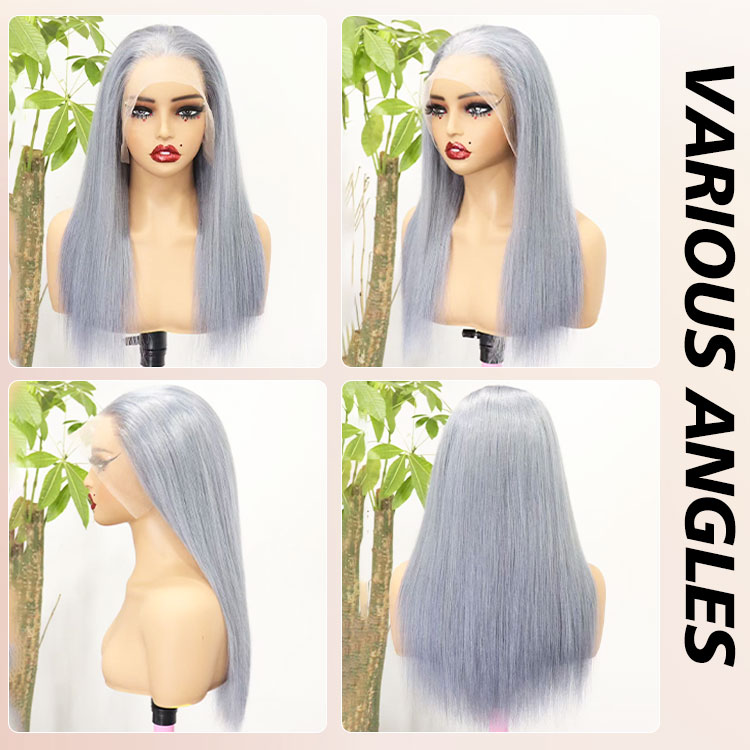Introduction
China has long been celebrated as a global manufacturing powerhouse, and within the realms of beauty and fashion, its production of hair extensions has gained particular prominence. As a leading provider of hair extensions, China has become synonymous with quality, variety, and innovation. This guide delves into the intricacies of China’s hair extension industry, exploring the factors that contribute to its success and how it caters to a diverse, global market.
TheLegacy of China’s Hair Extension Industry
China’s journey in producing hair extensions is deeply rooted in its rich textile heritage. The country’s expertise in knitting, weaving, and纺织 has allowed it to dominate the market by offering an extensive range of extensions that cater to all tastes and preferences.
- Craftsmanship: Chinese manufacturers are revered for their meticulous craftsmanship, ensuring each extension is smooth, durable, and free from tangles.
- Innovation: The Chinese hair extension industry is known for its rapid adaptation to new trends, continually innovating to meet the demands of a changing market.
- Global Collaboration: Chinese companies often collaborate with international brands, combining global design trends with local manufacturing expertise.
The Hallmarks of Quality Chinese Hair Extensions
The quality of Chinese hair extensions is characterized by several defining features:
- Quality Control: Chinese manufacturers adhere to stringent quality control measures, from the selection of raw materials to the final packaging of products.
- Material Excellence: The use of high-quality human hair, such as virgin and Remy hair, ensures extensions are lustrous, soft, and less prone to matting.
- Variety of Styles: Chinese hair extensions come in an array of styles, including straight, wavy, curly, and in numerous colors and lengths, satisfying a broad spectrum of customer preferences.
Types of Hair Extensions: Understanding the Options
Chinese hair extensions are available in various types, each with its unique selling points:
- Virgin Hair Extensions: Collected from a single donor, these extensions are unprocessed and offer the most natural look and feel.
- Remy Hair Extensions: These extensions have intact cuticles that are aligned in the same direction, minimizing tangling and offering a smooth texture.
- Synthetic Hair Extensions: While not made from human hair, synthetic extensions provide a cost-effective alternative that can mimic the appearance of real hair.
The Ethical Considerations of Hair Extensions
Ethical sourcing and production are of paramount importance in the hair extension industry:
- Sustainable Sourcing: Ethical Chinese manufacturers prioritize sustainable sourcing practices, ensuring that all hair is collected with donor consent and in a way that respects local communities.
- Labor Standards: Chinese factories that adhere to ethical standards ensure safe working conditions and fair wages for their employees.
- Regulatory Compliance: Chinese manufacturers comply with domestic and international regulations, ensuring that their products meet health and safety standards.
The Global Footprint of Chinese Hair Extensions
Chinese hair extensions have made a significant impact on the global market:
- Export Markets: China exports hair extensions to countries around the world, satisfying the demands of a diverse international clientele.
- Trend Influence: Chinese manufacturers often set trends in hair extensions, influencing styles and techniques adopted by salons and stylists globally.
- Economic Impact: The Chinese hair extension industry has a substantial economic impact, both within China and in the countries it supplies.
Challenges and Future Prospects
The Chinese hair extension industry faces several challenges that will shape its future direction:
- Market Competition: With a growing number of players in the market, Chinese manufacturers must continue to innovate and offer unique value propositions.
- Sustainability: As consumers become more environmentally conscious, the industry must focus on sustainable production methods and materials.
- Brand Development: Establishing strong, recognizable brands is crucial for Chinese manufacturers to compete in the global market.
Conclusion
China’s hair extension industry stands as a testament to the country’s manufacturing prowess and its ability to meet the diverse needs of a global market. With its commitment to quality, variety, and ethical practices, China has become the go-to destination for hair extensions. As the industry continues to evolve, it will be those companies that innovate, respect ethical standards, and cater to consumer demands that will lead the way in transforming tresses around the world.





